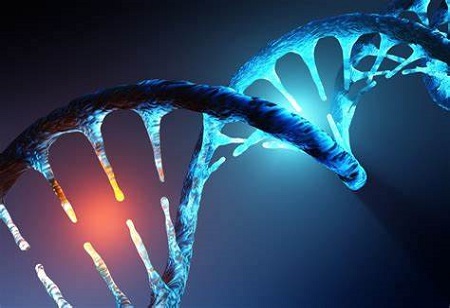India Pharma Outlook Team | Friday, 19 May 2023

Debiopharm, a privately held Swiss biopharmaceutical company aiming to establish tomorrow's standards of care to cure cancer and infectious diseases, has announced the start of an open-label phase 1/2 study evaluating Debio 0123, a brain-penetrant and highly selective WEE1 inhibitor, in combination with temozolomide (TMZ) in patients with recurrent or progressive glioblastoma and in combination with TMZ/RT (SOC) in newly diagnosed patients.
The initial part of this study attempts to identify the recommended Debio 0123 phase 2 doses. GBM is one of the most aggressive and fatal central nervous system tumours. This disease is a major cause of morbidity and mortality, affecting over 13,000 Americans and killing over 10,000 patients by 2022. In some situations, if left untreated, GBM might result in the patient's death within 3 months. This kind of cancer is more common in adults between the ages of 65 and 75. Patients encounter major quality of life challenges throughout the course of this dreadful disease, including movement abnormalities, personality changes, cognitive deficits, language disorders (aphasia), and visual field defects.
The disease's poor prognosis is a major public health concern. Debiopharm's Debio 0123 WEE1 inhibitor aims to address the critical need for novel therapy strategies to improve clinical outcomes and quality of life in patients with newly diagnosed or recurrent GBM. DDR pathways are frequently activated in cancer cells as a result of genomic instability, increasing the likelihood of resistance to DNA-damaging medicines. As a result, disrupting DNA repair pathways by inhibiting key kinases like WEE1 may contribute to the cancer's susceptibility to standard-of-care medicines. Furthermore, preclinical data reported at AACR 2023 reveal that Debio 0123 penetrates the blood brain barrier and inhibits cancer growth. Furthermore, combining Debio 0123 with TMZ in vivo resulted in dramatically improved anticancer activity. "I am thrilled to be a part of the development of a new generation of brain penetrant drugs." Having medications like this allows us to investigate novel treatments for brain tumours, which is still a challenge." MD Anderson Cancer Centre, Houston, Texas, Dr. Jordi Rodon Ahnert, MD, PhD. "The combination of Debio 0123 and temozolomide appears to be promising." Treatment with Debio 0123 to inhibit WEE1 has the advantage of specifically affecting cancer cells, which become increasingly reliant on the proper functioning of the G2-M checkpoint due to increased replication stress during the S-phase. "By acting at both the S-phase and G2-M checkpoints, Debio 0123 can make GBM cells more vulnerable to DNA-damaging agents like temozolomide," said Dr. Victor Rodriguez-Freixinos, associate medical director in oncology at Debiopharm. "Because of its physiological and structural properties, the blood brain barrier poses a unique challenge for drug delivery and a significant impediment to patient care."
"As a result, Debio 0123 brain permeability represents an important source of hope for patients suffering from brain cancer," said Dr. Patrick Roth of the University Hospital Zürich. Glioblastomas are fast-growing and aggressive brain tumours that can arise de novo or evolve from lower grade gliomas. GBM may be asymptomatic until it reaches a significant size. Aside from diagnostic challenges, nearly all GBM recur, and effective treatment options are limited. The widely accepted SOC for patients with newly diagnosed GBMs consists of surgical resection, followed by radiation therapy with concurrent TMZ. Despite treatment, nearly all GBM recur, the 5-year survival rate is still only 6.8% 1 and treatment options are very limited. Debio 0123 is a brain-penetrant, highly selective WEE1 kinase inhibitor. WEE1 is a key regulator of the G2/M and S phase checkpoints, activated in response to DNA damage, allowing cells to repair their DNA before resuming their cell cycle. WEE1 inhibition, particularly in combination with DNA damaging agents, induces an overload of DNA breaks. In conjunction with abrogation of other checkpoints such as G1, the compound pushes the cells through cycle without DNA repair, promoting mitotic catastrophe and inducing apoptosis of cancer cells. Currently in research for solid tumors in monotherapy and combination, Debio 0123 is being developed to respond to high unmet needs of patients living with the burden of difficult-to-treat cancers.
To live, cells with damaged DNA must go through a repair process known as DDR. Cancer cells employ their hyperactive DDR response to divide and expand in an uncontrollable manner, promoting cancer spread. Inhibiting DDR, especially when combined with other anticancer medicines, causes an overall halt in the uncontrollable cancer cell cycle. This eventually triggers a self-destruction programme in cancer cells. Clinical and preclinical trials are underway for DDR inhibitors such as Debiopharm's WEE1 and USP1 inhibitors. Debiopharm aims to develop innovative therapies that target high unmet medical needs in oncology and bacterial infections. Bridging the gap between disruptive discovery products and real-world patient reach, we identify high-potential compounds and technologies for in-licensing, clinically demonstrate their safety and efficacy, and then hands stewardship to large pharmaceutical commercialization partners to maximize patient access globally.